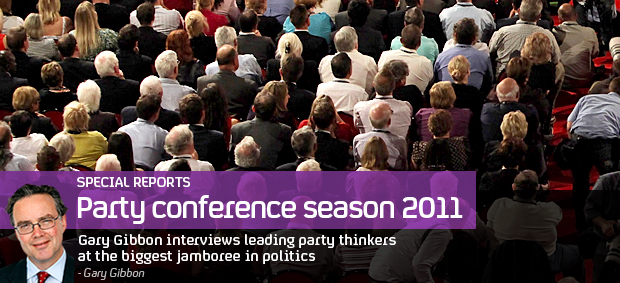Labour finally embraces Liverpool
Labour is holding its annual conference in Liverpool for the first time since 1925 – and the only previous occasion was in 1905 (when officially the party was called the Labour Representation Committee). Coming here marks something of a rapprochement between the Labour Party and this great city.
 Liverpool has always been a strong working class city, and a powerhouse of trade unionism. It has supplied many union leaders, notably Jack Jones, but how many Liverpudlian Labour Cabinet ministers can you think of? OK, one of the city’s MPs was Bessie Braddock, whose statue greets people arriving at Lime Street station (along with Ken Dodd). And there was Eric Heffer, of course, and his successor as MP, Peter Kilfoyle, but that’s about it. And none of those three reached Cabinet.
Liverpool has always been a strong working class city, and a powerhouse of trade unionism. It has supplied many union leaders, notably Jack Jones, but how many Liverpudlian Labour Cabinet ministers can you think of? OK, one of the city’s MPs was Bessie Braddock, whose statue greets people arriving at Lime Street station (along with Ken Dodd). And there was Eric Heffer, of course, and his successor as MP, Peter Kilfoyle, but that’s about it. And none of those three reached Cabinet.
Often Liverpool MPs have proved an embarrassment to the party. There was the trio (each elected in 1964, from memory) of Dick Crawshaw, Eric Ogden and Jimmy Dunn who all defected to the SDP in the early 1980s. Then the city elected Terry Fields, the Militant MP, who was eventually expelled. More recently the party expelled another Liverpool MP, Bob Wareing. Only Jane Kennedy, now retired as an MP, made a mark on the Blair-Brown government (though she, too, was always outside the Cabinet).
For years the Liverpool was the most troublesome area of the Labour movement. Indeed, Neil Kinnock made his name at the 1985 denouncing the Liverpool Labour Party, which was then under the effective control of the Trotskyist Militant tendency.
But in recent years the left has clearly been in decline in Liverpool Labour politics. The outside world was astonished when Stephen Twigg, a distinctly metropolitan figure (and openly gay), secured the Parliamentary nomination for the Liverpool West Derby seat (in succession to Wareing). More surprising still was that Luciana Berger, still only in her 20s, and again a London figure, was chosen as candidate for Liverpool Wavertree (despite her ignorance of who Bill Shankly was). Both Twigg and Berger are likely to play leading roles in a future Labour government.
It’s hard to believe, but until the 1960s Liverpool was a predominantly Conservative city, and only elected a majority of Labour MPs for the first time in 1964. This was because of the city’s traditional religious divide, and the fact many working class Protestants voted Conservative. (Indeed Liverpool actually had two elected on the “Protestant” label as late as 1972.)
Now, though, Conservatives are all but extinct in Liverpool, and they haven’t had a councillor here for years. Since the early ’70s the Liberals (and Liberal Democrats) have been Labour’s main opponents on the city council, though the Lib Dems suffered big losses here this May.
Perhaps this conference marks not just the start of the first real spell of Labour hegemony in Liverpool local politics, but a much greater contribution from Liverpool to Labour’s efforts nationally.
